Image quality can make or break your brand’s visual impact. AI tools have brought even more ways to edit and improve photos. They have also made it easier than ever to make all your images professional-quality. I wanted to show you how I’ve been remixing images using three leading AI image enhancement tools. They are so simple that if you decide to use one, you’ll have significantly better images relatively quickly.
How to Enhance Images Using AI Tools (3 Effective Ways)
Subscribe To Our Youtube Channel
AI technology is not just for creating images from scratch. As impressive as that is, I’ve found AI more helpful in helping me edit my photos. Because of that, I’ve tested three tools that stand out for their efficiency and quality.
1. Topaz’s Gigapixel for 6x Enhancements
Gigapixel (by Topaz Labs) is the perfect desktop solution for bringing pixelated or blurred images to life again. It can even reduce image artifacts, increase sharpness, and give any image a second chance at being used. It excels at enhancing image clarity and noise reduction with a very simple UI. Here’s how to use it:
Download and install Gigapixel. If you want to try it out, they offer a free trial (but you can’t download the images it enhances for you).
I have this image from a family vacation—unfortunately, it’s been compressed and shared a few times, so the image quality is quite poor. We’re going to see if we can enhance the image so that it is big enough to use as a website section background without being stretched.
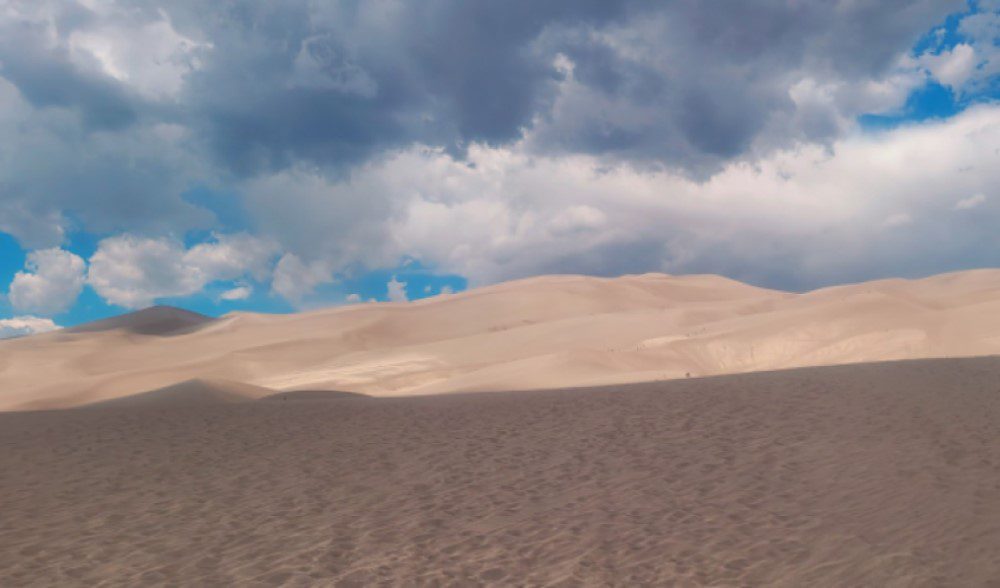
Open your image in Gigapixel by pressing “Ctrl + O” or clicking “File > Open Images.” Then, on the right sidebar, you’ll have several options under “Resize Mode” and “Output.” Gigapixel also lets you choose between various AI models based on your specific needs. The settings available depend on the AI model you choose.
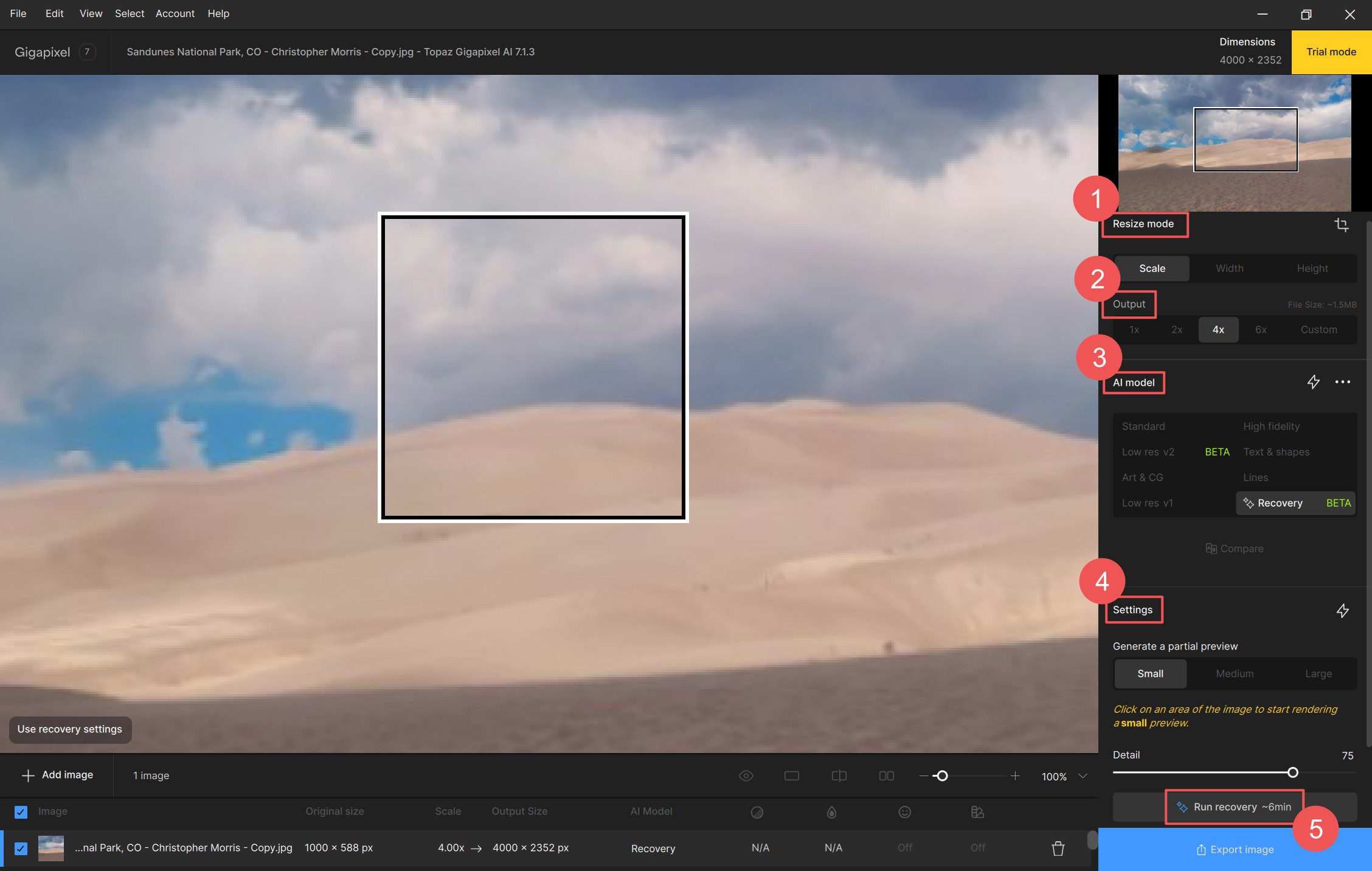
My original image was 1000 x 588 px, but I wanted to try the 4x setting with the “Recovery” AI model. That enhanced the image and brought the final dimensions to 4000 x 2352 px. Impressive. Based on the memory available on the laptop I was using, Gigapixel took about 6 minutes. Here are the before and after of an isolated selection from the example image.
Left side is enhanced using Gigapixel
Here’s another before-and-after example of distressed wood from an old barn.
This time, the improved image is on the right
In the premium version of Gigapixel, you can export the enhanced image in your desired format (the free trial does not allow exporting). I’m impressed. It turned a barely usable photo into something I wouldn’t mind sharing with the world.
Want to learn more about this incredible tool? Check out our Gigapixel review, which covers everything you need to know.
2. Adobe Photoshop’s Firefly for Precision Editing
Adobe’s Firefly AI works directly inside Photoshop and Lightroom. This makes it convenient for those already familiar with those applications. It’s easy to use and can improve grainy photos enough to make them usable again.
To quickly enhance an image, download and install Photoshop. Then, load your image into a new canvas. Select “Image > Image Size” in the menu bar. For this example, I chose to double the image size.
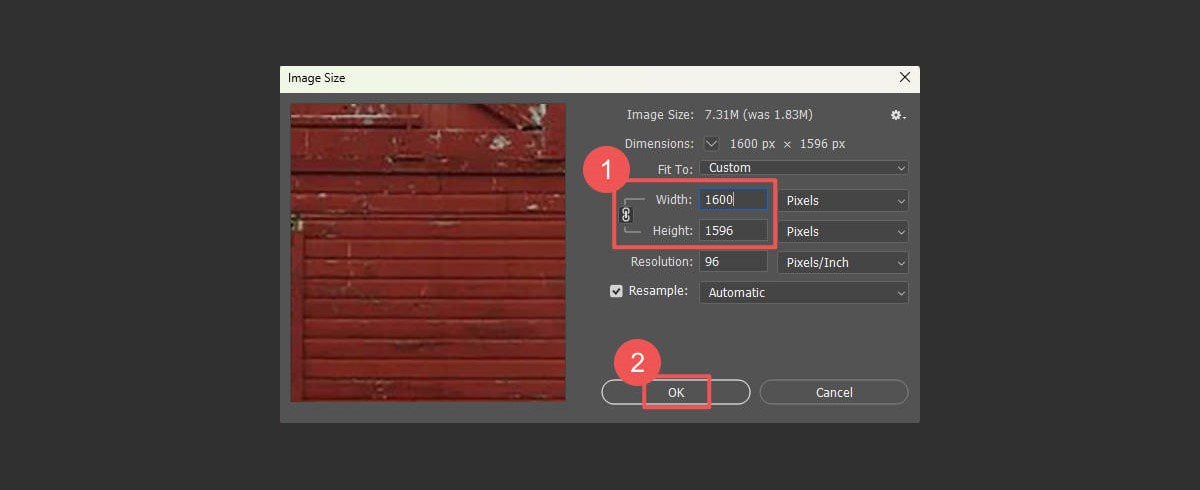
As you can see, this stretches the image out and adds distortion.
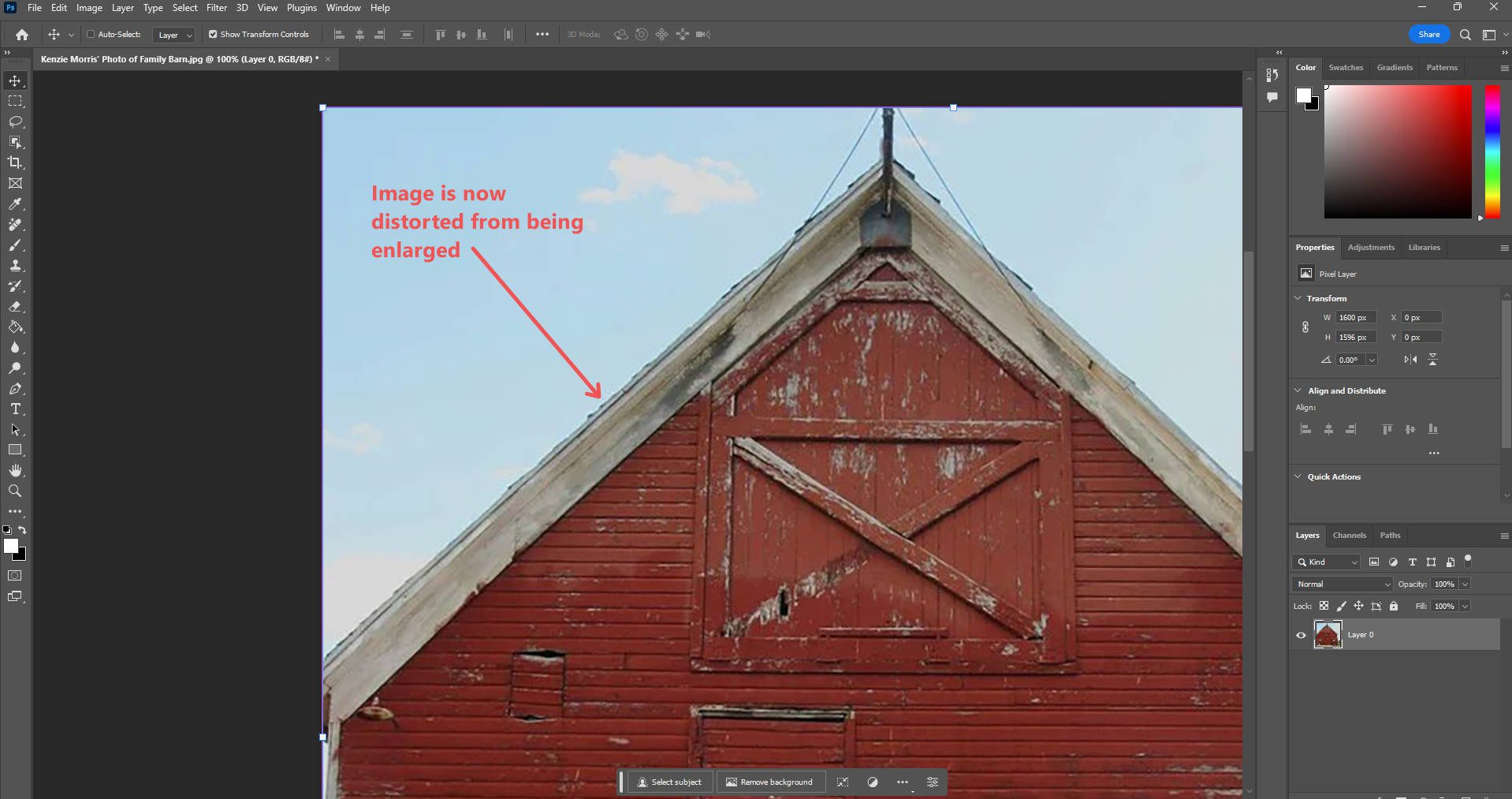
But now that I have the canvas size I want my image to be, I can apply one of Photoshop’s AI Neural Filters. Select “Filter > Neural Filter.”
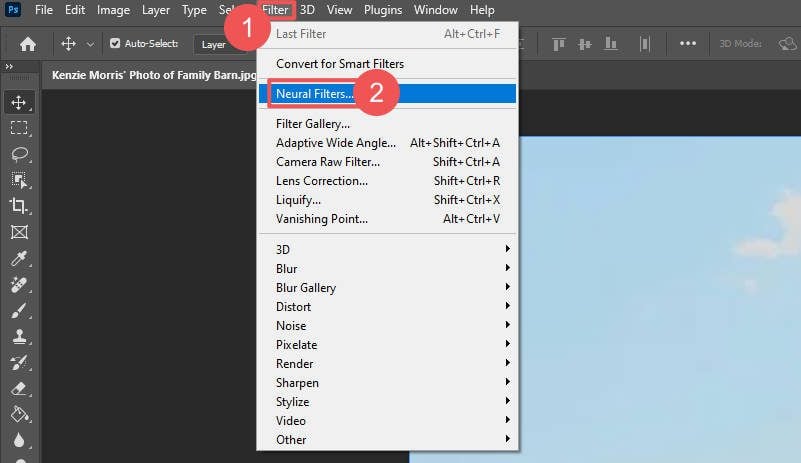
Photoshop will show a list of available Neural Filters. Find the “Photo Restoration” option. You may need to download it first if you’ve never used it before.
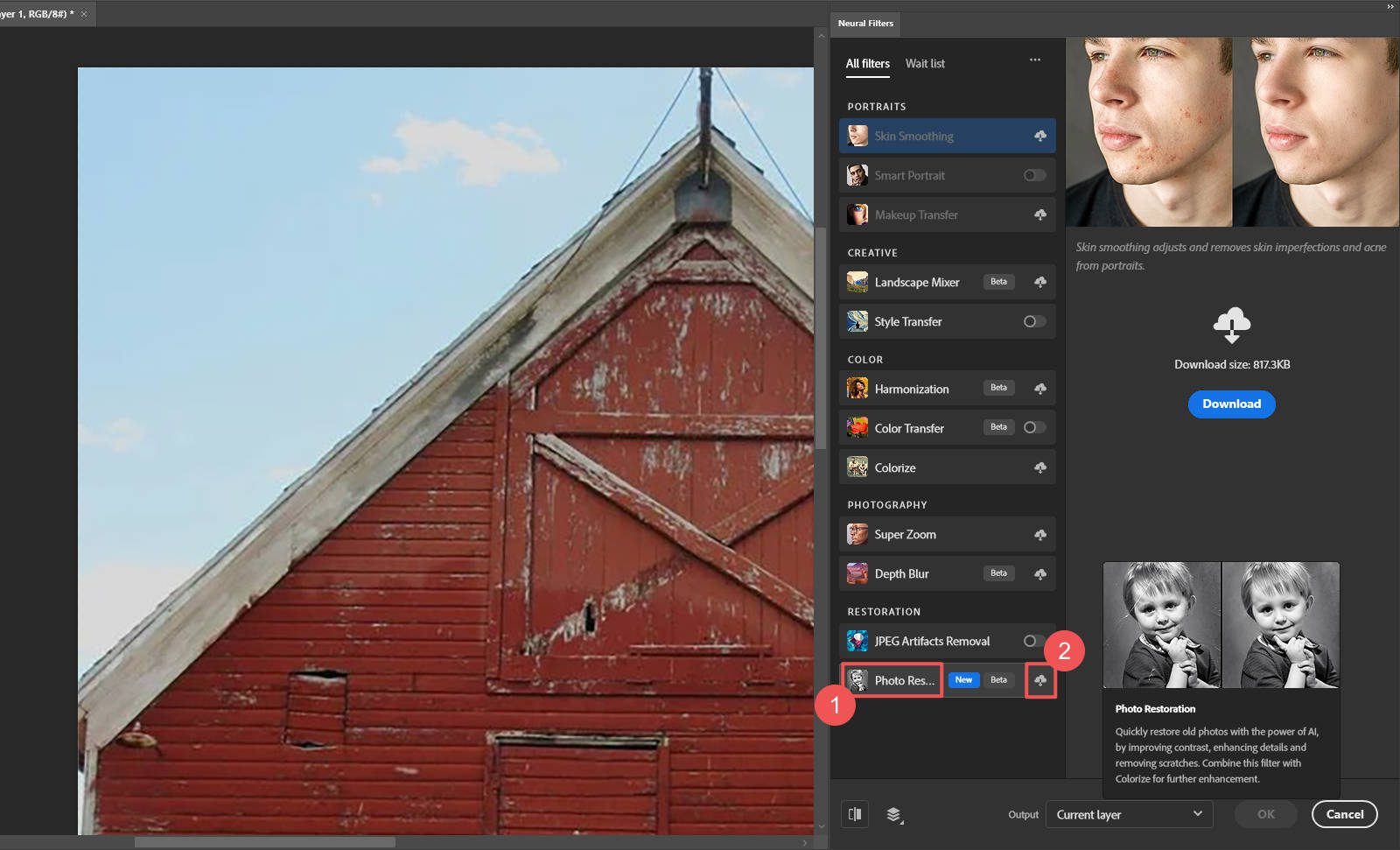
Adjust the settings to match your images’ needs. The main setting to adjust is the “Photo enhancement” slider. Under “Adjustments,” there are specific settings for noise reduction, color noise reduction, halftone artifacts reduction, and JPEG artifacts reduction.
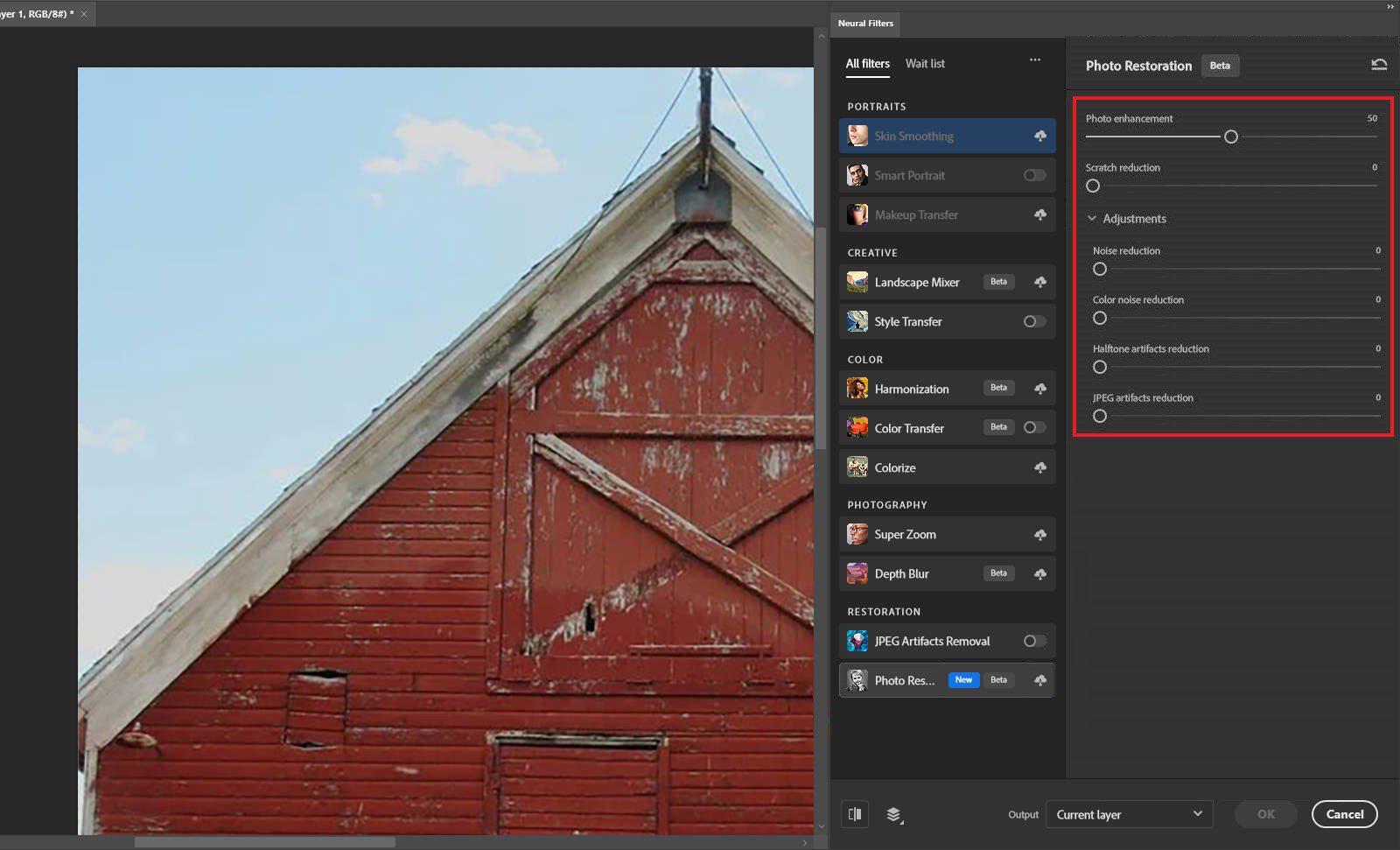
Photoshop also comes stocked with other specially trained Neural Filters that are specially trained to enhance images with particular enhancement needs. The quality and detail are most improved in the barn itself, with the sky being greatly removed from jpeg artifacts as well.

Before, Left; After, Right
Here are a few additional side-by-side comparisons of various images with AI Neural Filter enhancements.

Adobe Photoshop Neural Filter to Remove JPG Artifacts
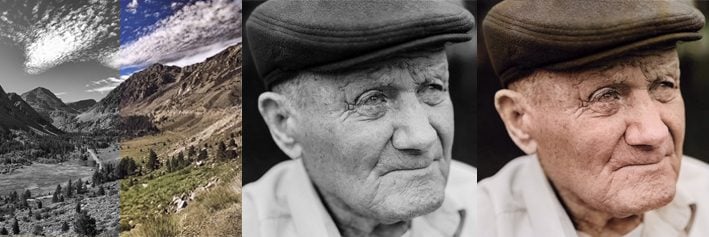
Abode Photoshop’s Neural Filter to Colorize B&W Images
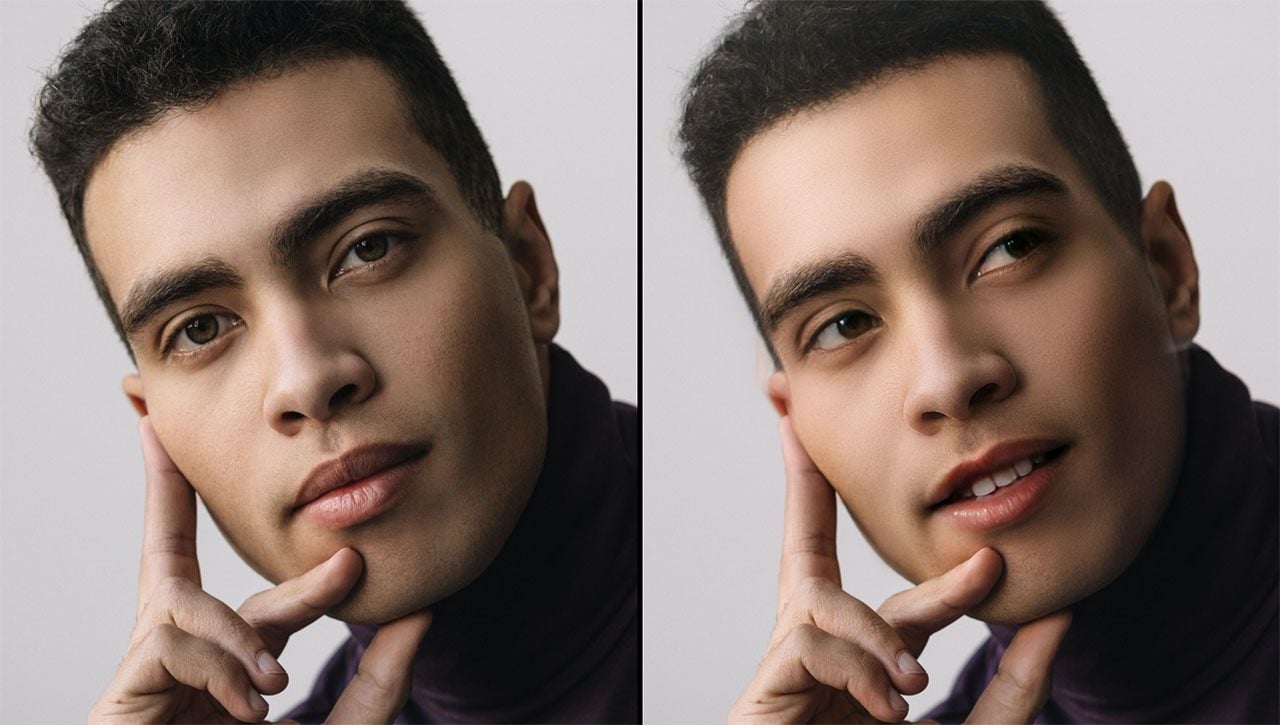
Adobe Photoshop’s Neural Filter to Enhance Portraits
3. Divi AI for Quick Website Graphic Enhancements
I design a lot of websites, so having Divi AI actually saves me a lot of time. It integrates directly with Divi’s Visual Builder and works with images in WordPress’ media library. That is just such a natural place for me to make photo edits that this context is worth trying Divi AI out itself.
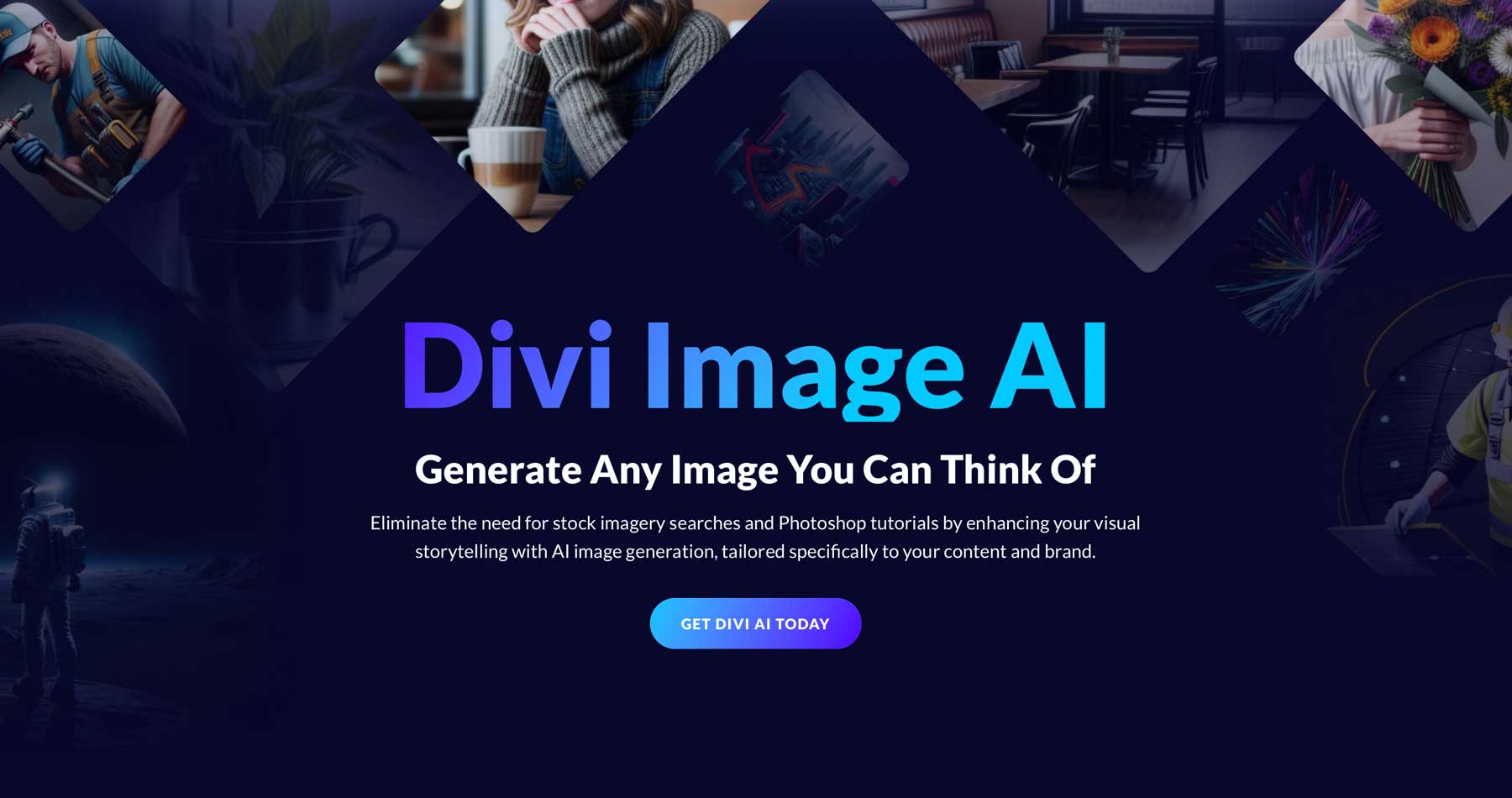
All you need to do is upload your image to your website’s Media Library (if it isn’t there already) and open any Divi Module with an image element. Add a photo to the module—here, we have an image inside an Image Module. Here we can generate new images or make enhancements to one we already have. Click the “AI” icon and then select “Upscale.” Choose to 2x or 4x the size of the original.
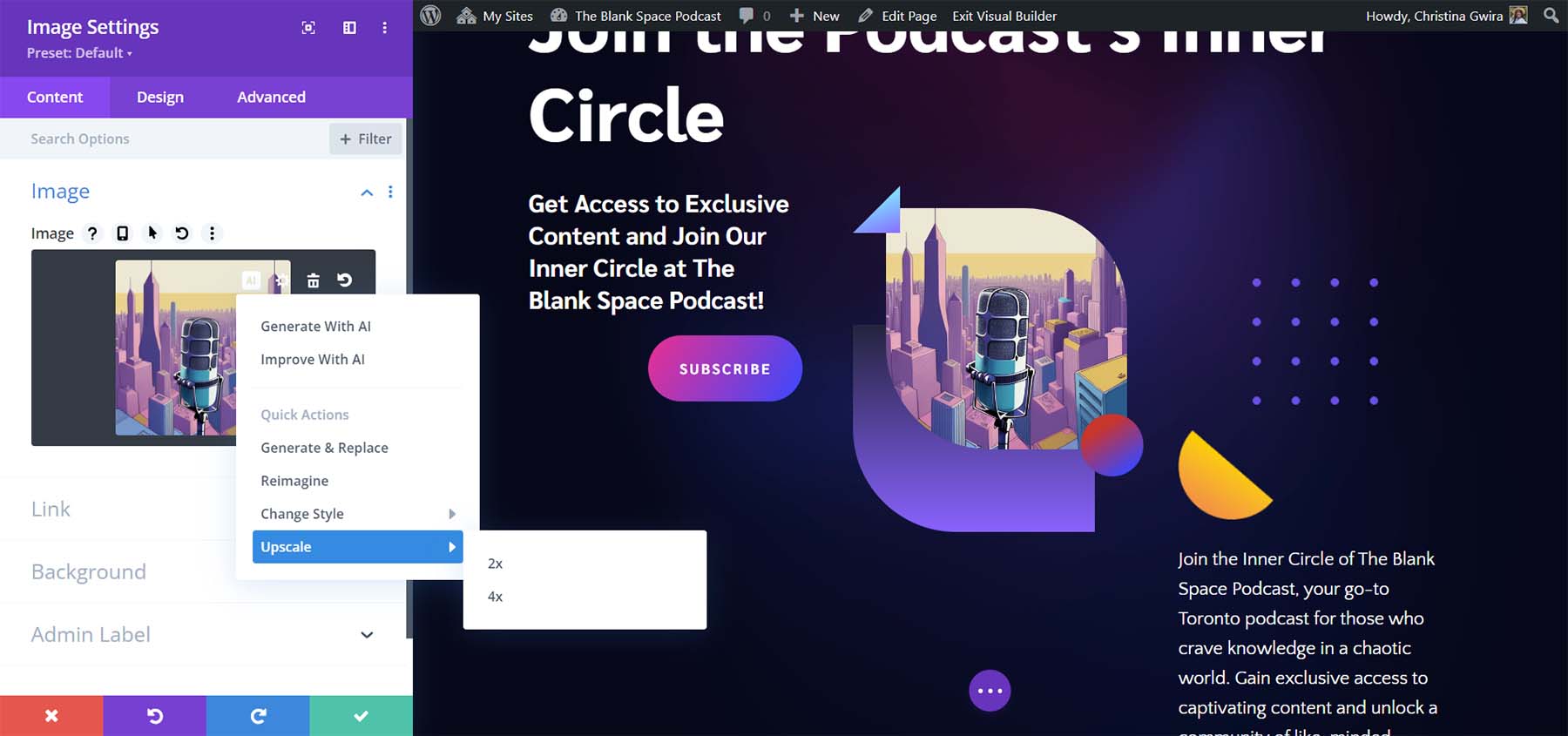
This will take the original image and apply AI to enhance/upscale it. There are no advanced settings or configurations—just improved image quality. There are other ways of using AI to edit photos with Divi AI, such as with a generative fill concept. With it you can add or remove objects from an image. Again, this all happens directly inside the builder so I can switch hats between web designer and graphic designer with ease.
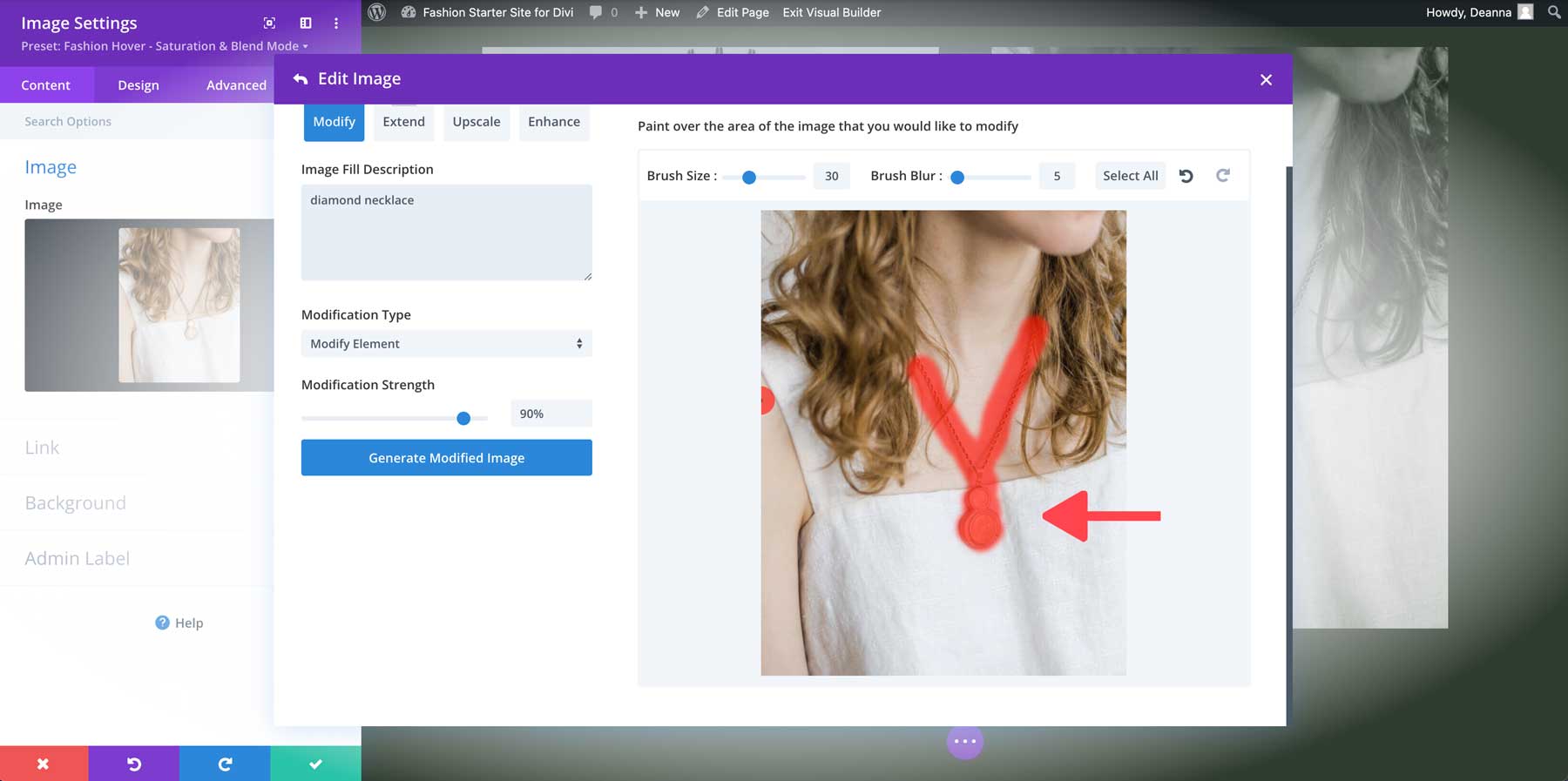
Divi AI is a web designer’s best friend. Instead of fumbling through stock photo sites and Photoshop tutorials, designers can ask Divi AI to create exactly the images they need where they need them. And if a client hands over blurry or low-quality images, Divi AI can recover them many times.
For a fuller guide with more details, see how to upscale images in WordPress with Divi AI.
Did you know that Divi AI also builds complete web pages and writes code/text? Divi AI is included in Divi Pro which itself has a ridiculous amount of tools for web designers and agencies. Divi AI can also be purchased separately, but by far, the best way to build websites is by using everything Divi Pro has to offer.
Best AI Image Enhancers for Your Needs
Each tool offers unique strengths. I’d suggest that your ideal tool depends on what type of work you do.
- Photographers: Topaz’s Gigapixel is an easy-to-use AI enhancer that might be the best choice for its simple desktop workflow. Just upload an image, set a few settings, and watch it scale (even in bulk).
- Graphic Designers: Adobe Photoshop’s AI tools provide the precision and versatility needed for high-quality visual content. Combined with Generative Fill and Photoshop’s traditional photo editing abilities, it is a powerhouse of a tool.
- Website Designers: Divi AI works with WordPress, making it ideal for enhancing images directly within your website’s workflow. Use the AI capabilities of the #1 WordPress theme to reduce open tabs and applications.
Whether you’re trying to get rid of noise and artifacts in your images or simply trying to make them larger, AI is paving the way for better images. No matter what you intend to do with your images, AI is proving to be a necessary tool to get the most out of each of them.
Looking for more tools? Check out these AI photo enhancers and our tutorial on how to create AI images.
Featured Image by Martial Red / shutterstock.com

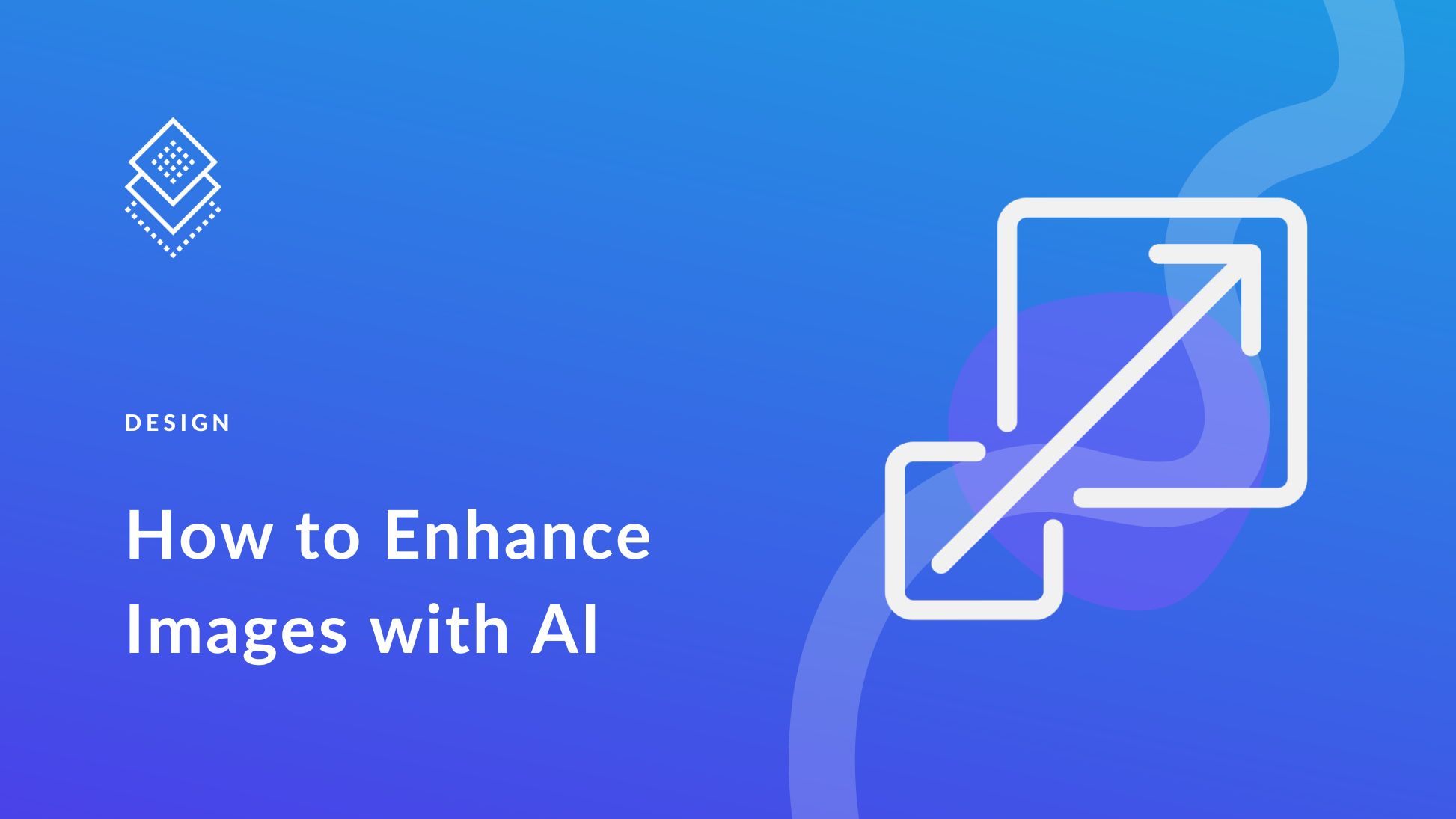
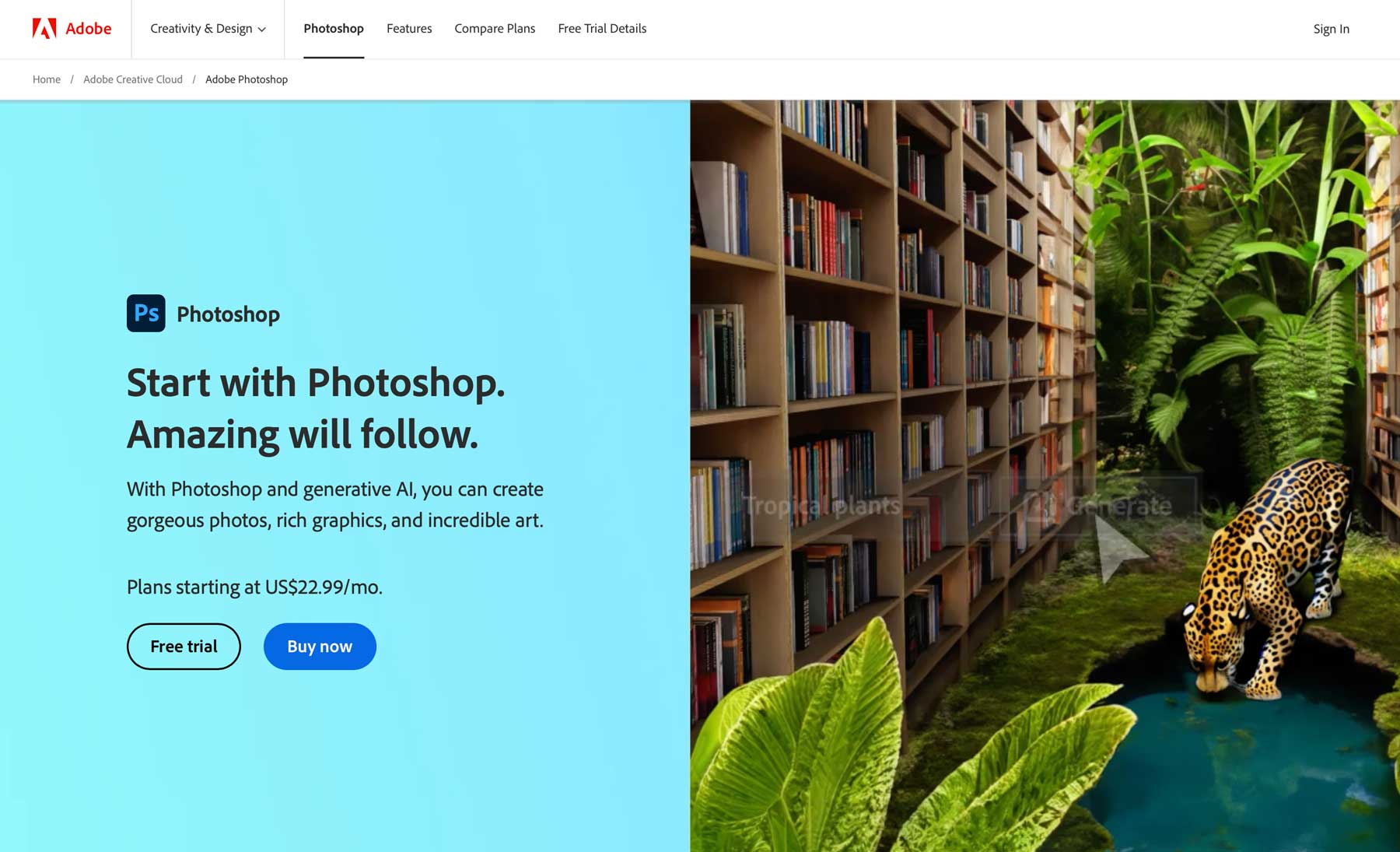
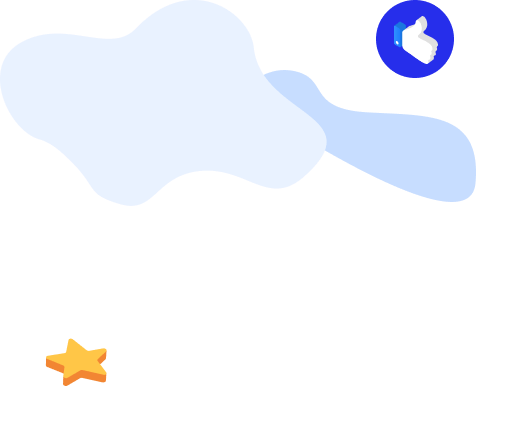


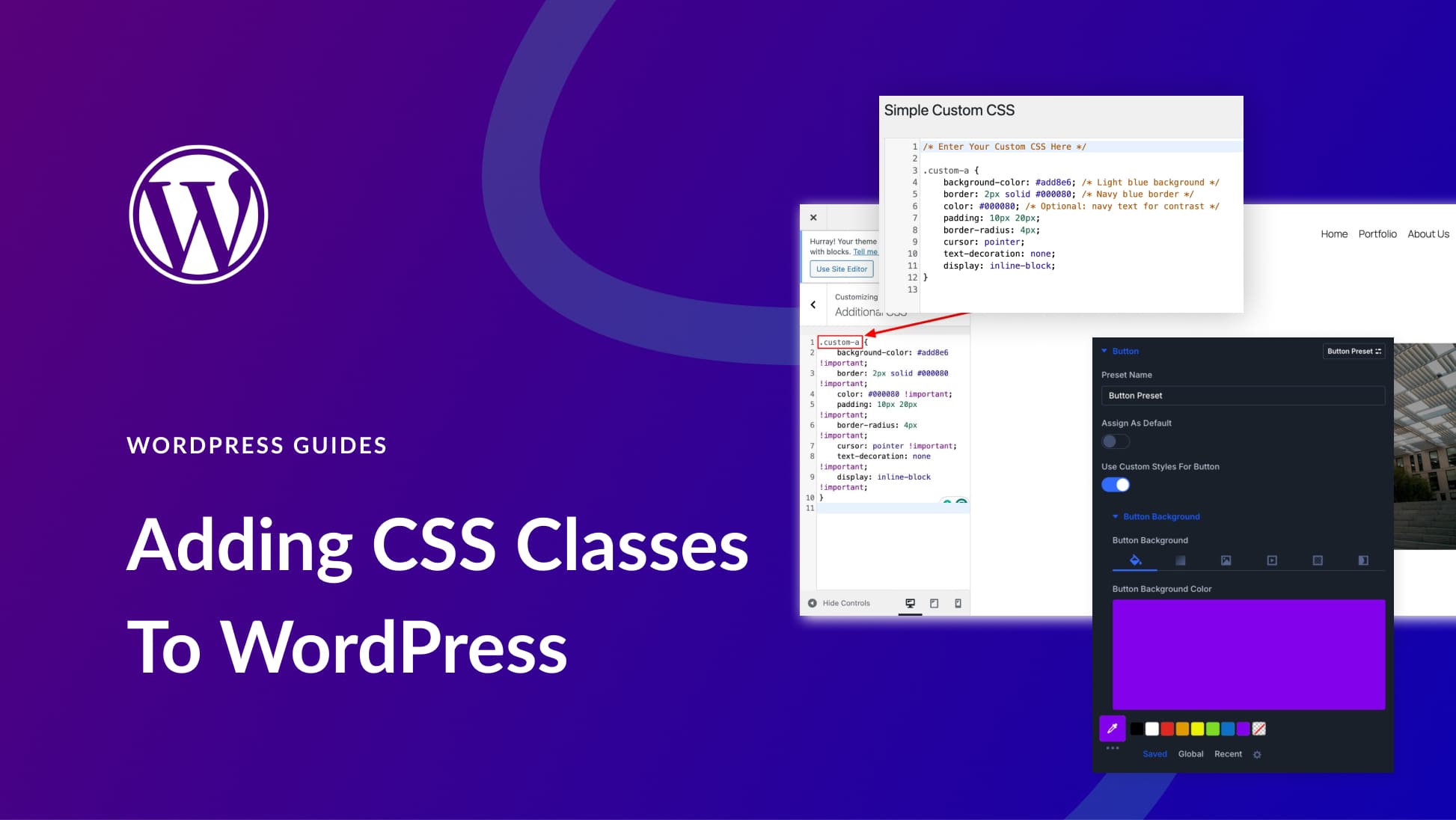
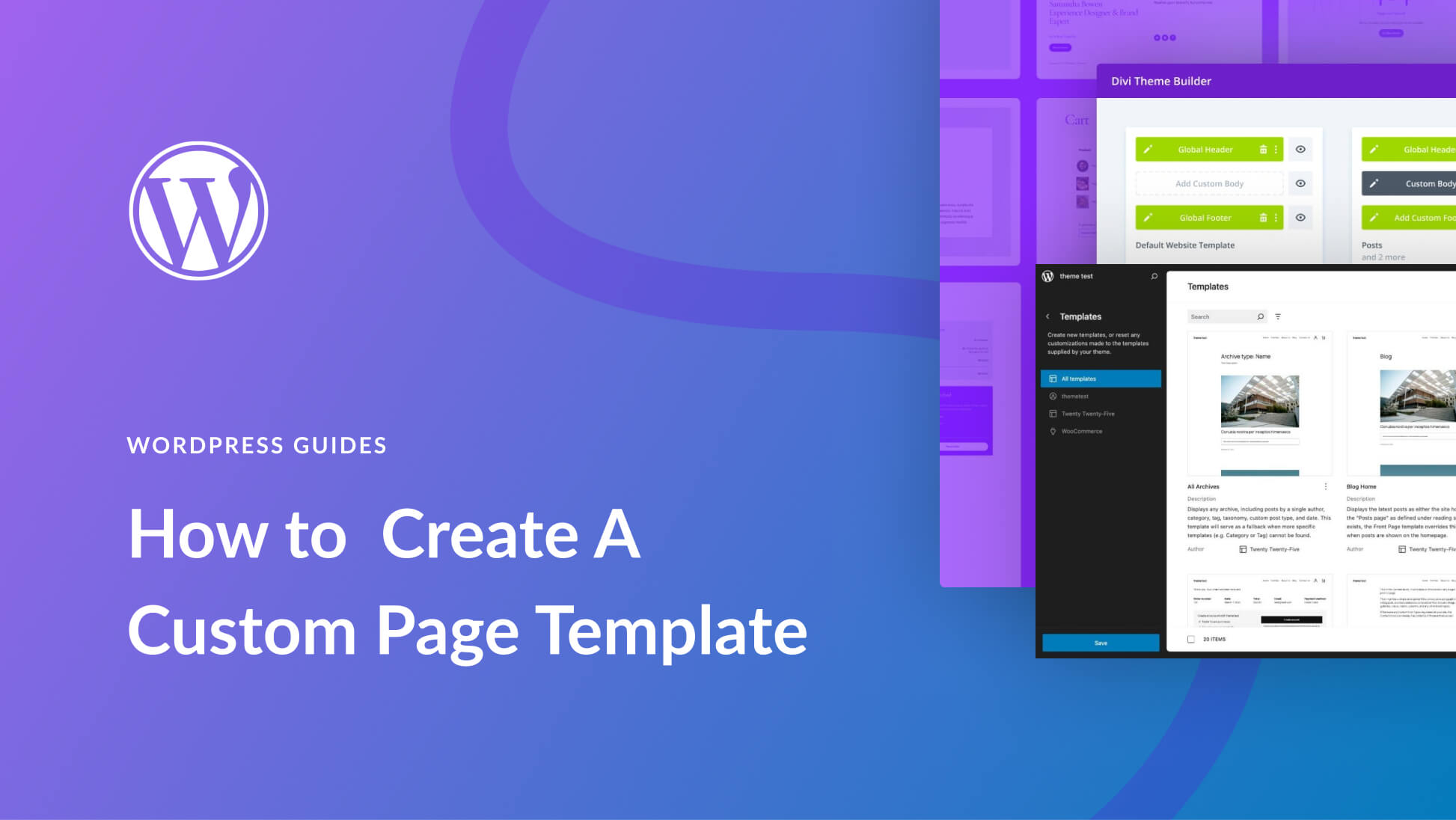
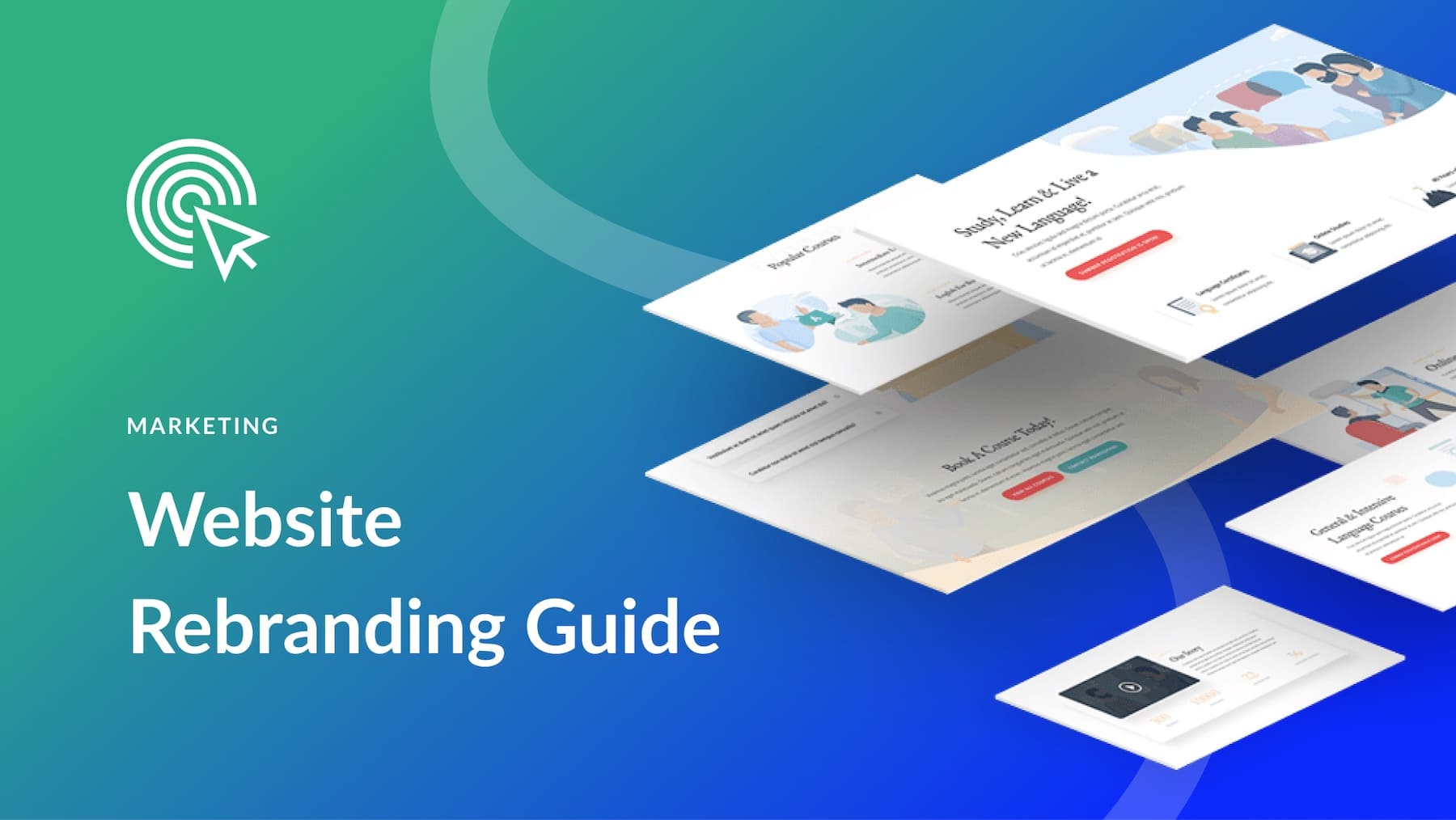
Leave A Reply